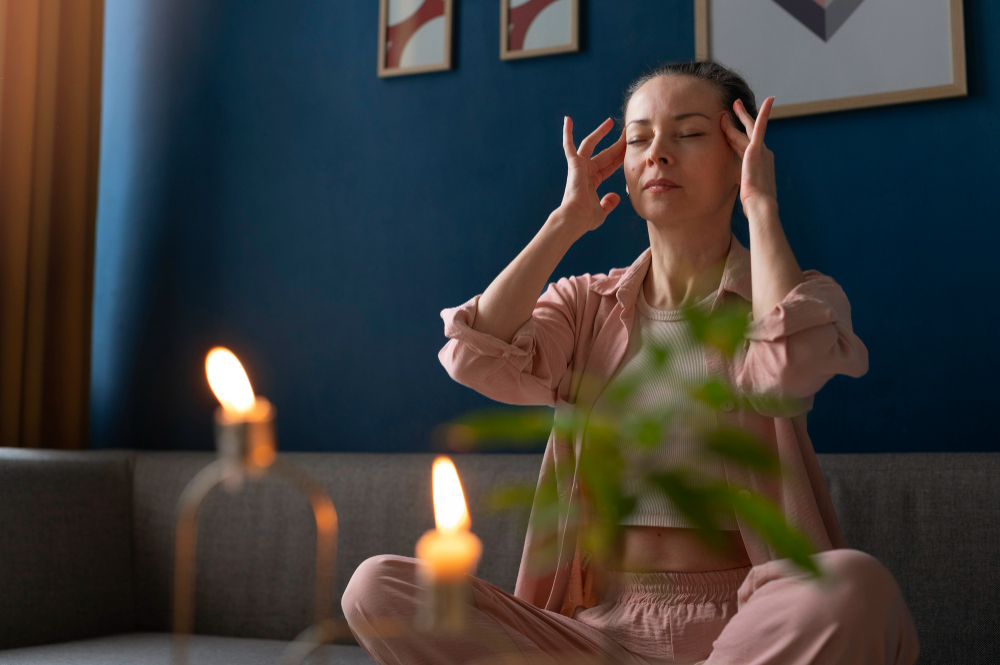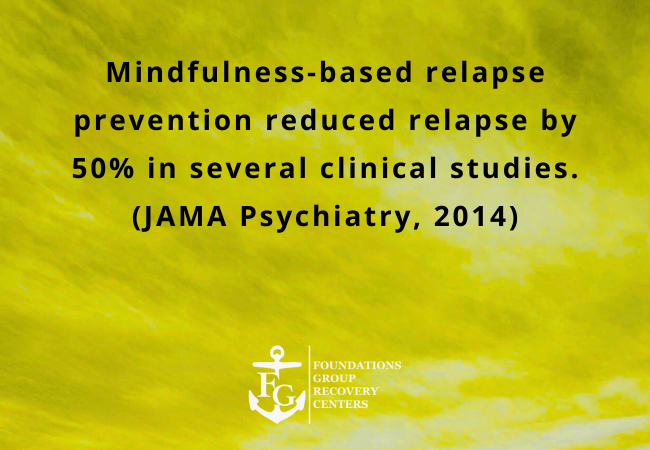Recovery from addiction is a deeply personal and multifaceted journey. It requires more than just stopping substance use—it demands rebuilding your life from the inside out. At Foundations Group Recovery Centers, we believe that lasting recovery comes from combining the best of both worlds: evidence-based traditional therapies and holistic, integrative care. Together, they form a powerful foundation for healing that addresses every part of a person—body, mind, and spirit.
In this blog, we explore how the fusion of traditional and holistic methods enhances recovery outcomes, and why our Holistic Addiction Treatment Program in Massachusetts is uniquely designed to deliver both.
What Is Comprehensive Recovery?
Comprehensive recovery goes beyond detoxification or symptom management. It’s about healing the root causes of addiction, restoring physical and emotional health, and equipping individuals with lifelong tools to maintain sobriety.
At its core, this approach:
- Treats both the physical and psychological aspects of addiction
- Addresses co-occurring mental health conditions
- Supports spiritual, emotional, and behavioral growth
- Provides practical strategies for long-term wellness and relapse prevention
That’s why Foundations offers an integrated model through our Addiction Treatment Center in Massachusetts, where traditional clinical services are paired with holistic therapies for a complete recovery experience.
Traditional Therapies: The Clinical Backbone of Recovery
Traditional treatment methods are the gold standard in addiction care. They are rooted in decades of research and proven to be effective in helping individuals manage substance use disorders.
Core Components of Traditional Treatment:
- Cognitive Behavioral Therapy (CBT)
Teaches individuals to recognize and reframe negative thought patterns that drive addictive behaviors. - Dialectical Behavior Therapy (DBT)
Focuses on emotional regulation, distress tolerance, and building interpersonal skills. - Group Therapy
Offers peer support, accountability, and connection with others on the same journey. - Family Counseling
Rebuilds communication and trust between clients and their loved ones. - Medication-Assisted Treatment (MAT)
Uses FDA-approved medications to support recovery from opioids or alcohol, when appropriate. - Relapse Prevention Planning
Identifies triggers, stressors, and coping strategies to reduce the risk of relapse.
These therapies are the cornerstone of care in all our Addiction Treatment Programs in Massachusetts, whether in Outpatient, Day Treatment, or Half Day formats.
Holistic Therapies: Treating the Whole Person
While traditional therapy focuses on what you do, holistic therapy focuses on how you feel and who you are. It addresses the emotional, physical, and spiritual imbalances that often contribute to addiction and helps clients heal from the inside out.
Common Holistic Modalities:
- Yoga and Mindful Movement – Reduces stress, enhances body awareness, and promotes emotional stability.
- Meditation and Breathwork – Helps calm the nervous system and develop self-regulation.
- Nutritional Therapy – Restores physical health and improves mood through balanced eating.
- Art and Music Therapy – Provides non-verbal outlets for self-expression and emotional release.
- Acupuncture and Massage – Eases physical tension and supports detoxification.
- Nature Therapy and Spiritual Counseling – Encourages inner peace and a sense of purpose.
Each of these therapies is integrated into our Holistic Addiction Treatment Program in Massachusetts to help clients create meaningful, lasting change.
Why the Combination Works: The Science of Integration
1. Healing the Brain and Body
- Traditional therapy like CBT helps change thought patterns and develop behavioral control.
- Holistic care—like yoga and nutrition—calms the nervous system, improves sleep, and restores brain chemistry.
Together, they heal both the mental process and physical condition, promoting clearer thinking and emotional stability.
2. Managing Stress and Preventing Relapse
- Stress is a major trigger for relapse.
- Traditional therapy provides cognitive tools to manage stress.
- Holistic therapy offers body-based tools like breathwork and meditation to directly reduce anxiety.
This dual approach provides a more robust, full-spectrum defense against relapse.
3. Treating Trauma and Co-Occurring Disorders
- 40%+ of people with addiction have co-occurring disorders like PTSD or depression.
- Therapy helps process trauma and develop emotional insight.
- Holistic tools like EMDR, expressive arts, and mindfulness support somatic (body-based) trauma release.
This combination allows trauma to be addressed both cognitively and physically for deeper healing.
4. Improving Self-Awareness and Self-Esteem
- Traditional therapy builds insight.
- Holistic therapy helps people feel connected to their bodies and emotions.
- This increases emotional intelligence, which leads to healthier choices and stronger recovery.
What an Integrated Day at Foundations Looks Like
In our Day Treatment Programs in Massachusetts, a typical schedule blends both treatment styles:
| Time | Activity |
|---|---|
| 9:00 AM | Morning check-in and guided meditation |
| 9:30 AM | Group therapy (CBT/DBT-focused) |
| 11:00 AM | Nutritional education and mindfulness snack |
| 12:00 PM | Lunch break and social connection |
| 1:00 PM | Expressive therapy (art, music, journaling) |
| 2:00 PM | Yoga, tai chi, or movement therapy |
| 3:00 PM | Individual counseling or relapse prevention work |
This integrated structure supports daily healing on every level—mental, emotional, physical, and spiritual.
The Role of Holistic Care in Detox and Outpatient Transitions
After Alcohol & Drug Detox in Massachusetts, clients often face challenges such as:
- Emotional instability
- Sleep disruption
- Nutrient deficiencies
- Stress sensitivity
Holistic therapies offer essential tools to stabilize and rebuild during this vulnerable phase. Similarly, those entering our Outpatient Addiction Treatment in Massachusetts or Half Day Treatment Program in Massachusetts benefit from holistic support that fits their schedule and lifestyle.
These services empower clients to maintain momentum while balancing work, school, or family responsibilities.
Personalized Recovery Plans—Tailoring the Blend of Therapies
Every individual’s journey with addiction is different. That’s why the most effective recovery programs are personalized—not just clinically, but holistically as well.
At Foundations Group Recovery Centers, we develop custom recovery plans that thoughtfully combine traditional therapies and holistic services based on:
-
Type of substance use (alcohol, opioids, stimulants, etc.)
-
Co-occurring mental health conditions
-
Trauma history or emotional stress levels
-
Physical health, mobility, and lifestyle needs
-
Cultural, spiritual, or personal preferences
For example:
-
A client in our Half Day Treatment Program in Massachusetts managing anxiety and opioid use may benefit from DBT, nutritional therapy, and restorative yoga.
-
A client transitioning from Alcohol & Drug Detox in Massachusetts may receive intensive individual counseling, breathwork, and a structured nutrition plan to support early withdrawal stabilization.
The result? A well-rounded recovery experience that adapts to the client—not the other way around.
Addressing the Root Causes of Addiction
While traditional treatment excels at managing symptoms and behaviors, holistic therapies dive deeper into the emotional and somatic root causes of addiction.
Common underlying issues include:
-
Unresolved trauma
-
Low self-worth
-
Grief and loss
-
Unmanaged chronic stress
-
Disconnection from self and purpose
Holistic therapies such as art therapy, spiritual counseling, journaling, and guided meditation allow clients to safely explore these core issues in a non-verbal, intuitive way—complementing the insight gained through clinical talk therapy.
This deeper work is essential for long-term success, especially for clients in Outpatient Addiction Treatment in Massachusetts who are navigating real-world stressors while rebuilding their lives.
Balancing Structure and Flexibility in Recovery
A common challenge in addiction treatment is finding the right balance between structured care and real-life responsibilities. Our program options—from full-time to flexible part-time—are designed to integrate into a client’s lifestyle while still delivering comprehensive support.
-
Day Treatment Programs in Massachusetts offer intensive, full-day therapy for those needing structure after detox or relapse.
-
Half Day Treatment Programs in Massachusetts provide flexibility for those balancing work, school, or family responsibilities.
-
Outpatient Addiction Treatment in Massachusetts supports continued growth, accountability, and access to holistic care with a more autonomous schedule.
Holistic services like yoga or mindfulness can be practiced at home between sessions—reinforcing new habits outside the treatment setting.
This flexibility empowers clients to practice recovery in real-time—a key differentiator in maintaining long-term success.
Life After Treatment—Carrying Holistic Tools Forward
Recovery doesn’t end when a program does. One of the greatest strengths of combining traditional and holistic therapy is that many holistic tools can be used for life—long after formal treatment ends.
Graduates of our Addiction Treatment Programs in Massachusetts leave with:
-
Daily breathing and grounding techniques
-
A personalized wellness routine
-
Knowledge of balanced nutrition for mood and energy
-
Confidence in emotional self-regulation
-
Spiritual clarity or renewed purpose
-
Practical relapse prevention strategies
We also connect clients with alumni groups, continued outpatient support, and community wellness resources, ensuring they stay rooted in recovery beyond their time at our center.
Who Benefits Most from Combined Treatment?
Holistic-traditional integration is especially helpful for:
- People with co-occurring disorders (PTSD, anxiety, depression)
- Individuals with a history of trauma or chronic stress
- Clients needing tools for emotional regulation
- Those seeking more than sobriety—whole-life transformation
- Individuals stepping down from inpatient or detox and needing structured, supportive care
Why Choose Foundations Group Recovery Centers?
As a leading Addiction Treatment Center in Massachusetts, we specialize in combining clinical excellence with compassionate, holistic care. Here’s what sets us apart:
- Evidence-based therapy by licensed clinicians
- Trauma-informed yoga, meditation, and creative therapies
- Nutrition-focused recovery planning
- Flexible options: full-day, half-day, and outpatient programs
- Customized treatment plans tailored to each person
- Peaceful, healing-centered environment
Whether you’re entering treatment for the first time or returning after relapse, our programs are built to help you thrive—mentally, emotionally, and physically.
Conclusion
You don’t have to choose between traditional rehab and holistic wellness—you can have both. At Foundations Group Recovery Centers, we help you build a recovery rooted in science, strengthened by self-discovery, and sustained through compassionate care.
Call us today at 844.763.4966 to learn how our integrated approach can help you or your loved one reclaim life, health, and hope.
Frequently Asked Questions (FAQs)
Can I receive holistic and traditional therapy at the same time?
Yes. All our treatment levels combine both therapy types into a unified program tailored to your needs.
Is holistic care covered by insurance?
Many of our services, including yoga, mindfulness, and nutritional therapy, are covered when part of your treatment plan. Contact us for insurance verification.
Do I need to complete detox first?
Yes, if you are physically dependent on substances. Our Alcohol & Drug Detox in Massachusetts can help stabilize you before transitioning into holistic-integrated care.
Can I access holistic services in outpatient treatment?
Absolutely. Both our Outpatient and Half Day Treatment Programs include access to meditation, yoga, nutrition, and more.
What if I’m unsure about trying holistic practices?
That’s okay! We gently introduce practices in a way that fits your comfort level. You’ll never be pushed—only supported.


